Vet Tech Reveals 8 Dog Breeds With the Worst Health Problems: “I’d Never Own Them”

Every dog deserves love, affection, and a happy home. But, if you’re in the market for a new companion, it’s important to know that some dog breeds are more prone to health issues than others—and that can mean a shorter life span, higher vet bills, and a lot of stress and grief for you as an owner.
Vet tech student Sierra Towers (@sierra.towers) posted a video to TikTok, in which she reveals eight dogs she would never own, sparking a lot of comments from others. “Our breeding genetics are just not it,” her caption reads. But are her concerns legit? According to the Orthopedic Foundation for Animals and several other sources, they are. Genetic conditions like hip dysplasia and heart disease are significantly more common in certain dog breeds, and research published in Canine Genetics and Epidemiology has shown that purebred dogs, in general, are more likely to suffer from inherited disorders than mixed breeds.
So, if you’re considering adding a furry friend to your family—or already have one of these breeds at home—this list can help you understand the common conditions to watch out for in popular breeds and how to give your dog the healthiest life possible.
RELATED: I’m a Veterinarian, and I’d Never Own These 5 Dog Breeds: “Not a Dog, This is a Machine”
1
Great Dane
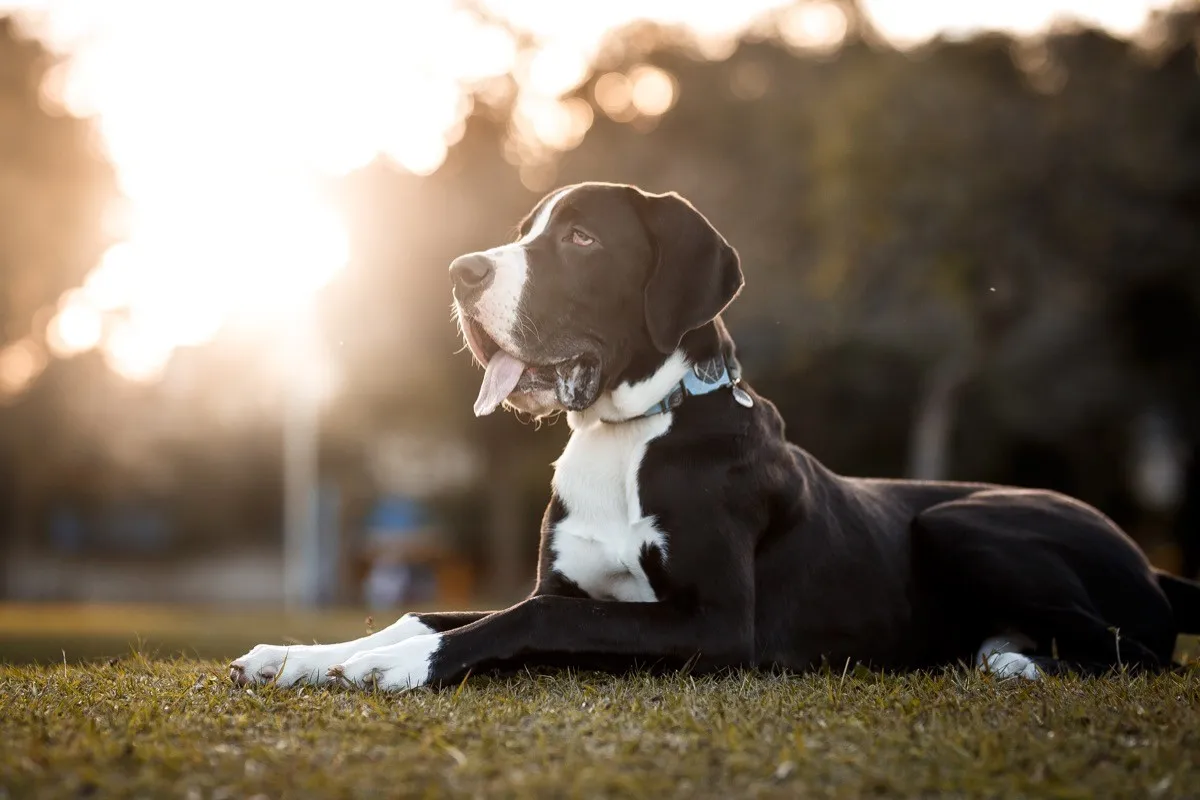
Great Danes are out, Towers says in her video, because they’re prone to GDV, or gastric dilatation-volvulus.
According to the American College of Veterinary Surgeons (ACVS), GDV is a “rapidly progressive life-threatening condition of dogs that requires immediate medical attention. The condition is multifactorial but is commonly associated with rapid ingestion of large meals. The presence of food and gas causes the stomach to significantly dilate and expand, which may have several severe consequences.”
While GDV can be seen in all breeds, it’s most common in Great Danes, along with Weimaraners, St. Bernards, Irish setters, and Gordon setters.
2
French Bulldog

Frenchies are impossibly cute and strong for their petite size, but Towers warns they’re not a tough competitor when it comes to respiratory complications.
“Like all flat-faced breeds, Frenchies are prone to breathing problems and do poorly in hot or humid weather,” the American Kennel Club (AKC) says.
In fact, their English cousins, the English Bulldog, have the same issue and top nearly every list for health concerns. According to a 2022 study in Canine Medicine and Genetics, English Bulldogs are twice as likely to suffer from health problems compared to other dogs. And Frenchies aren’t much better.
“Many owners become concerned when they hear their French bulldog breathing heavily, and this may or may not be normal,” PetPlace says. “It could be due to the physical makeup of the dog’s airway, or it could be a sign of brachycephalic airway syndrome. This is a condition that is common with French bulldogs and other dogs with short airways and scrunched faces. The problem can range from mild to serious with the most serious cases requiring surgery.”
RELATED: 7 Worst Dog Breeds to Own, Vet Tech Says
3
Yorkie
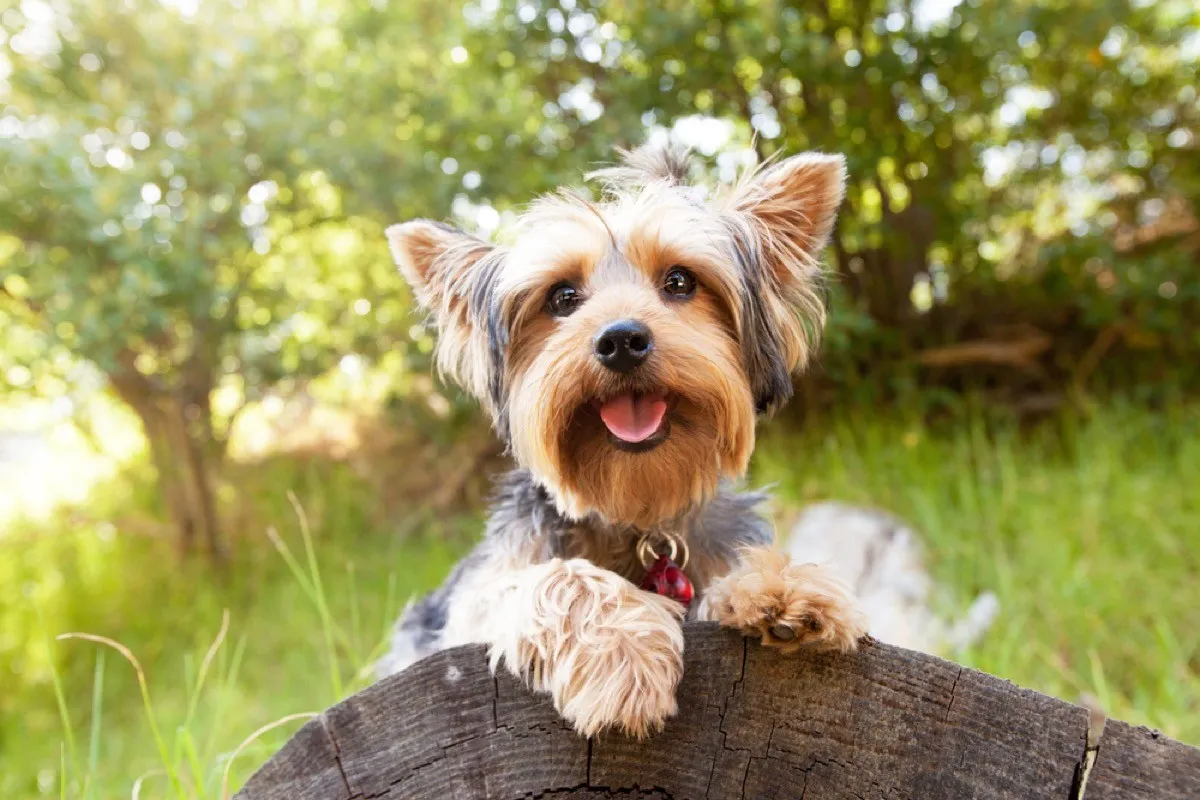
Another popular small breed with concerning health issues is the Yorkie. As Towers explains, many can develop a scary medical condition called tracheal collapse.
The trachea, aka the tube carrying air through the nose and mouth into the lungs, can flatten in such tiny dogs, according to PetMD. Yorkshire Terriers (or Yorkies) are especially prone to it, as well as other small breeds, such as Pomeranians, Chihuahuas, Shih Tzus, and Toy Poodles.
This condition “can make it harder to get air into the lungs and breathe normally. As a result, many dogs with tracheal collapse will make a dry, goose-like honking cough sound.”
4
Shar-Pei

Famous for their deep wrinkles, Shar-Pei’s are unfortunately prone to infections and inflammation, and one in four suffer from a painful hereditary condition called Shar-Pei Fever.
“Affected dogs experience recurrent episodes of fever and inflammation, with no identifiable underlying cause,” writes VCA Hospitals. “This causes the dog to feel ill and uncomfortable.”
Towers also cites “aggressiveness” as her reason for not wanting to own this particular breed.
Without proper training, the AKC notes, an adult Shar-Pei can be “a serious problem waiting to happen.”
RELATED: 5 Dog Breeds Most Pet Owners Can’t Handle, Vet Warns
5
Dachshund
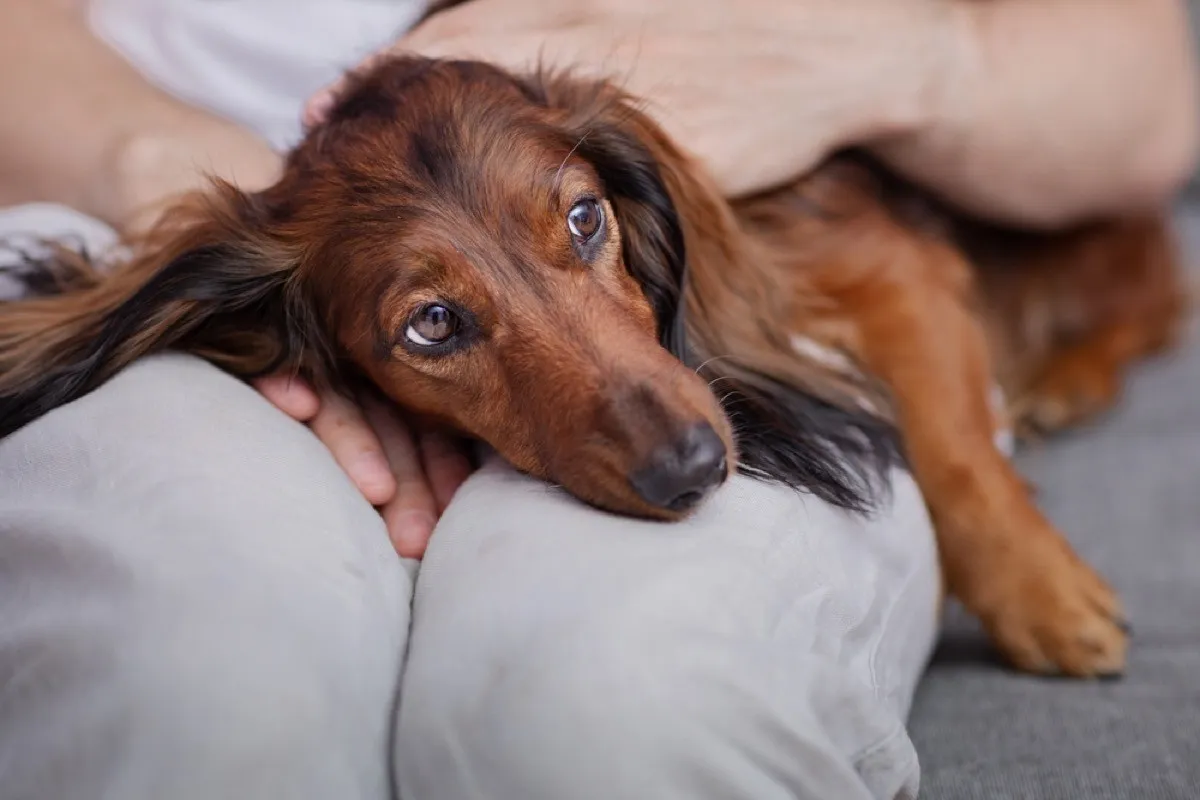
These long-bodied pups are fun and feisty—but their iconic shape puts a ton of stress on their spine. They’re one of the breeds most likely to develop IVDD, a painful and sometimes paralyzing back problem, Towers says.
IVDD stands for intervertebral disc disease, and it can be very serious. The Cornell University College of Veterinary Medicine (CVM) explains that it’s “a common source of back pain in dogs, especially in older dogs but also in younger dogs of predisposed breeds. The severity and type of disc injury can vary widely, ranging from mild discomfort to paralysis.”
Unfortunately, Dachshunds are at the top of the list for IVDD cases, followed by Toy and Miniature Poodles, Pekingese, Lhasa Apsos, Doberman Pinschers, Beagles, Cocker Spaniels, and German Shepherds.
6
German Shepherd
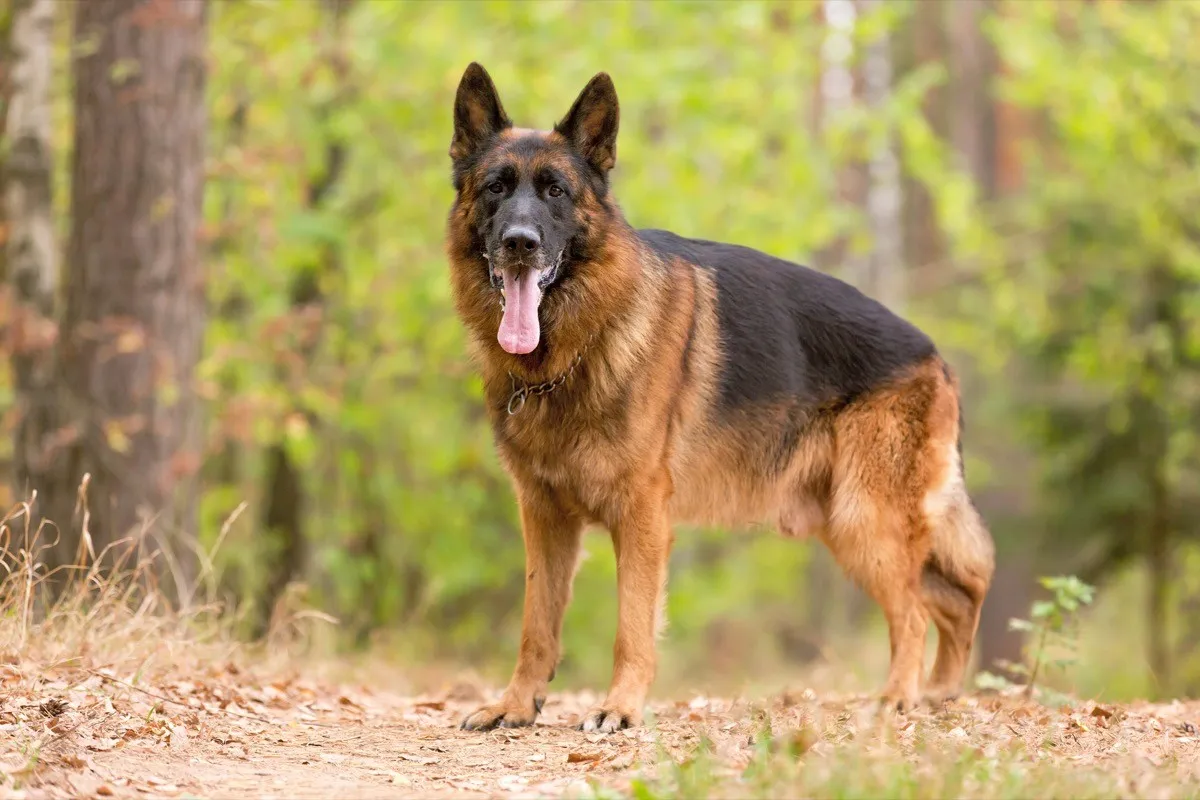
Loyal and intelligent, German Shepherds often serve as police and service dogs—but they’re prone to serious skeletal problems. Towers cites hip dysplasia as the reason she will never own one.
Hip dysplasia is caused by poor development of the hip joint or traumatic fracture. “With cartilage damage or a hip joint that isn’t formed properly, over time, the existing cartilage will lose its thickness and elasticity,” the Orthopedic Foundation for Animals (OFA explains. “This breakdown of the cartilage will eventually result in pain with any joint movement.”
The OFA’s breed-specific testing statistics show that over 20% of German Shepherds have abnormal or dysplastic hips.
RELATED: Dog Experts Share 10 Red Flags to Spot in Other Dogs
7
Greyhound

Greyhounds are a simply stunning type of dog breed known for their record-breaking speed and gentle temperament. However, Towers says their common health issue—dental disease—could make them a complicated dog to own.
A study by the university revealed that dental disease is the most common health problem facing pet Greyhounds, according to London’s Royal Veterinary College. The research found that 39% of Greyhounds suffer from dental issues, “which is a far higher percentage than for any other dog breed.”
Greyhounds also have low body fat, which means they require extra warmth in cold temperatures and may be overly sensitive to anesthesia.
8
Husky
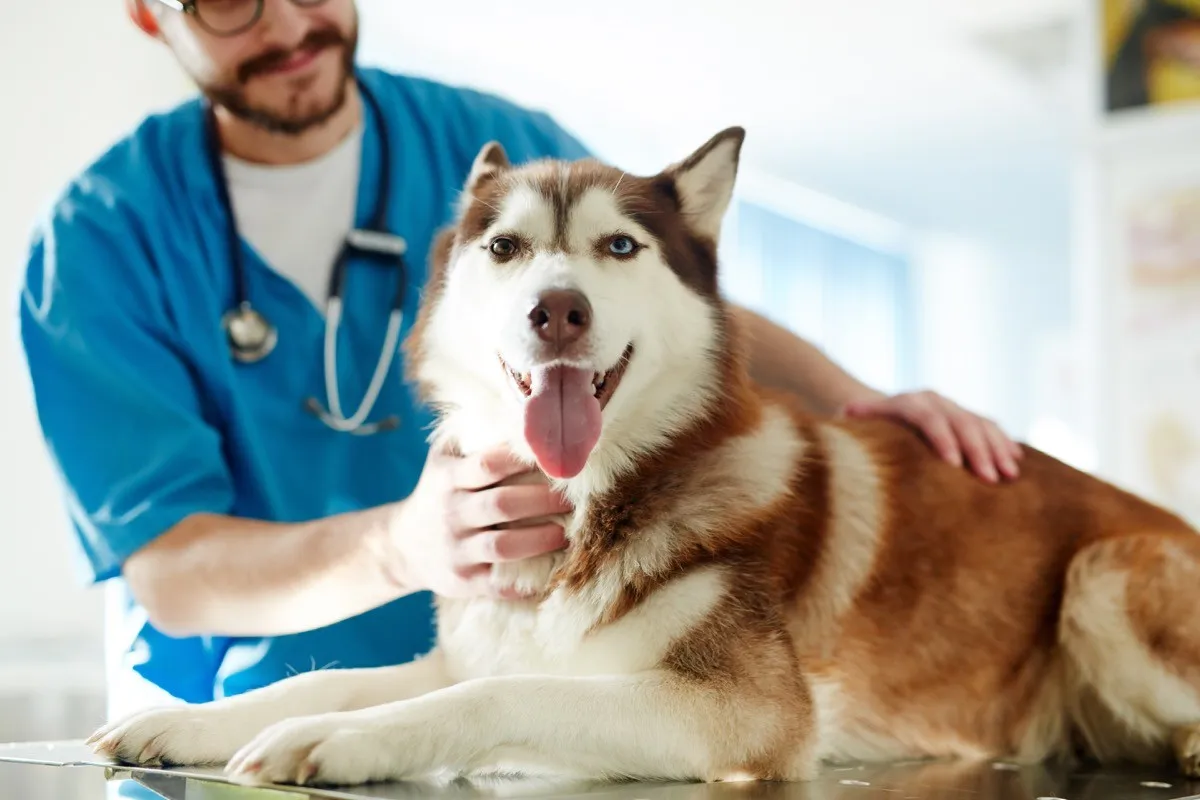
Huskies? You may be surprised to see these blue-eyed babes on this list, but as Towers explains, their major health issue is more mental than physical.
Huskies are friendly, affectionate, and people-loving, but they can suffer from debilitating anxiety, the vet tech says.
“Your Siberian Husky may howl, whine or otherwise vocalize his displeasure at your leaving the house and his being left alone,” BeChewy explains. “Your dog needs to learn that he will be fine on his own for a while and that he will not wither away if he is not attended to every minute of the day.”
If you have a busy schedule out of the house most days, a Husky may not be the best choice for you for this reason.
- Source: https://www.acvs.org/small-animal/gastric-dilatation-volvulus/
- Source: https://www.akc.org/dog-breeds/french-bulldog/
- Source: https://www.vet.cornell.edu/departments-centers-and-institutes/riney-canine-health-center/canine-health-information/intervertebral-disc-disease
- Source: https://ofa.org/chic-programs/browse-by-breed